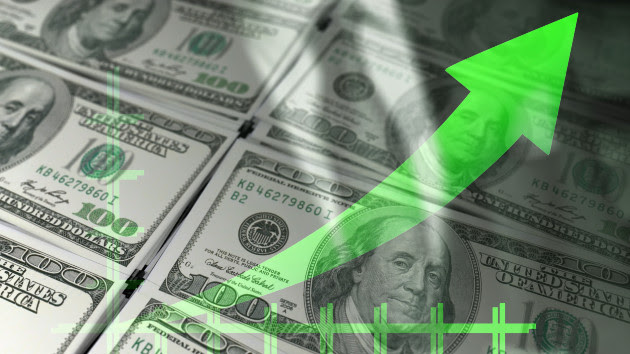(NEW YORK) — Consumer prices rose 4.9% last month compared to a year ago, extending a monthslong slowdown and bolstering hopes that inflation will continue its return back to normal levels.
The fresh data aligns with the Federal Reserve’s effort to slow the economy and slash prices while averting a recession.
The Fed last week escalated an aggressive series of interest rate increases with a quarter-point hike as it aims to slash inflation by slowing the economy.
The move came days after the seizure and forced sale of First Republic Bank, the latest spasm of banking unrest that has arisen in part from the Fed’s rate hikes.
Consumer prices rose 5% in March compared to a year ago, recording inflation well below a summer peak, but leaving it more than double the target rate of 2%.
Economists expect year-over-year inflation to have stood flat at 5% in April, halting the progress in inflation reduction and placing pressure on the Fed to further hike its benchmark interest rate even as it risks deepening the financial unrest and plunging the economy into a recession.
Data released earlier this month showed that economic growth slowed at the outset of this year, suggesting the rate hikes have helped put the brakes on business activity.
U.S. gross domestic product grew by a 1.1% annualized rate over the three months ending in March, according to government data.
A better-than-expected jobs report on Friday, however, defied fears that rate hikes have substantially weakened the economy.
Instead, the U.S. added 253,000 jobs in April, marking a slight decline from an average of 290,000 over the previous six months. The unemployment rate fell to 3.4%, matching a 54-year low, government data showed.
Meanwhile, U.S. retail sales have fallen moderately but remained solid over the course of this year, suggesting that households still retain some pandemic-era savings.
While resilient economic measures offer policymakers some leeway as they weigh further rate hikes and invite a deeper slowdown, an extension of the Fed’s series of rate increases could worsen banking distress.
As the Fed aggressively hiked interest rates over the past year, the value of long-term Treasury and mortgage bonds dropped, punching a hole in the balance sheets at some banks.
Three of the nation’s 30-largest banks have failed since March. While high interest rates contributed to the collapses, each of the banks also retained a sizable portion of uninsured depositors, who tend to panic without a government backstop for their funds.
Last week, in response to a question about additional rate hikes, Fed Chair Jerome Powell noted the removal of a sentence that appeared in the Fed’s previous rate hike announcement in March that said “some additional policy increases might be appropriate.”
Powell described the omission in the announcement on Wednesday as “meaningful,” saying a decision about any additional rate hikes would be “data dependent.”
Copyright © 2023, ABC Audio. All rights reserved.












